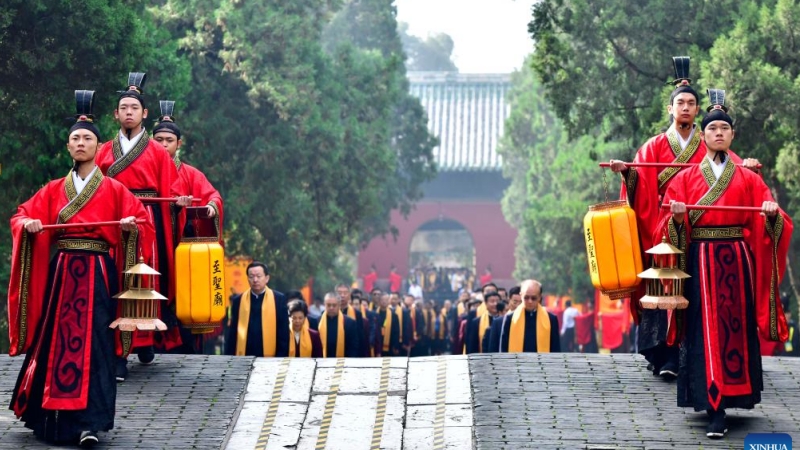Decoding the importance of Schumer's China visit
After China and the United States conducted high-level consultations on Asia-Pacific affairs in Washington, U.S. Senate Majority Leader Chuck Schumer revealed that a bipartisan congressional delegation will visit China. The trip aims to contribute to a sustained rise in diplomatic engagements between two of the world's largest economies, a move welcomed by Beijing. "We hope this visit will contribute to a more objective understanding of China in the U.S. Congress, increase dialogue and communication between the legislatures of our two countries, and add positive factors to the growth of China-U.S. relations," said China's Foreign Ministry spokesperson recently.
The successful, high-level exchange between Chinese Vice Foreign Minister Sun Weidong and U.S. Assistant Secretary of State for East Asian and Pacific Affairs Daniel Kritenbrink offers key lessons for Washington to build on strategic communication with China and support an objective understanding of China in Asia-Pacific affairs.
Looking back on the Sun-Kritenbrink exchange, an important takeaway was China's assessment of the U.S.-led "Indo-Pacific" strategy and matters central to the South China Sea. For example, consultative diplomacy among neighboring states and a departure from third-party provocations remain chief to maintaining maritime stability in the South China Sea. Thus, it is in the interests of the visiting delegation to deliver new growth points for the relationship, as well as provide support for existing risk reduction mechanisms and dispute resolutions in the region.
Common understandings about strategic goals in the Asia Pacific can also lend clarity to a truly inclusive "rules-based" order and help avoid zero-sum containment that targets a country's legitimate development. Sun's emphasis on sound U.S.-China interactions for regional stability presented a tangible opportunity for U.S. senators to work towards limiting the risk of conflict and misunderstandings through collective engagement. Moreover, continuity of high-level engagement promotes the broader objective of a sound, stable, and dependable U.S.-China relationship and one that is responsive to Asia Pacific's stated expectations on maritime security and development.
Interestingly, the Sun-Kritenbrink exchange also drew attention to core Chinese national interests and the fundamentals of U.S.-China diplomatic relations. China reiterated its stance on the ironclad "One China" principle, which also serves as the linchpin of peace and stability across the Taiwan Strait. This is important because both Washington and Beijing have expressed a desire to dial down the risk of undue escalation across the Strait. However, there remains ample space for the U.S. to demonstrate its credible adherence to the One China principle and honor its historic commitment against "Taiwan independence."
China's policy towards the U.S. has been marked by noninterference and consistency on matters of internal significance. This makes it imperative for Washington to reciprocate that consistency to the benefit of bilateral ties during Schumer's high-profile visit. The delegation's legislative significance makes it an ideal chance to navigate outstanding differences and improve dialogue and engagement between U.S. and Chinese legislatures.
For the Asia-Pacific region specifically, open lines of U.S.-China communication can also ease regional fears about camp-based confrontation and major power rivalry. The ASEAN-centered regional cooperation architecture itself supports inclusive pathways to managing maritime affairs and stands to strengthen in the absence of zero-sum containment approaches. It is here that the recent U.S.-China consultations on Asia-Pacific affairs prioritized intersecting regional interests in the security, economics, and maritime space. Schumer's own visit can build on several of those mutual interests with China, given his visit's stated focus to discuss "economic and national security interests" across the region.
In light of these realities, Schumer's visit should be seen as a productive opportunity to build on a streak of fruitful engagements between senior Chinese and U.S. diplomats. In many ways, it supports the implementation of a high-level consensus between the two countries' heads of state while generating valuable opportunities to shore up mutual strategic trust.
Hannan R. Hussain is a foreign affairs commentator, author and recipient of the Fulbright Award.
Photos
Related Stories
Copyright © 2023 People's Daily Online. All Rights Reserved.









